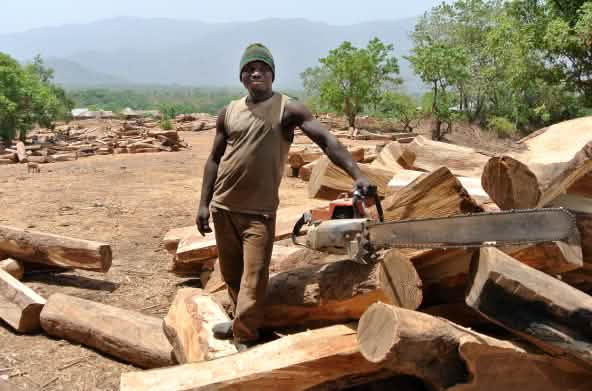Completed campaign
The bloody products from the house of Unilever
The manufacturing company Unilever prefers to conceal the ingredient that many of its products (Rama/Blue Band, Becel/Flora etc.) contain: palm oil – and thus, the blood of indigenous people and peasants in Indonesia who are threatened, shot at, arrested and driven off for the sake of its cultivation. Now, the Wilmar Group that supplies Unilever with palm oil for its wide range of goods has dealt another blow.
UPDATE: Violence in Indonesia – but Unilever is indifferent to victims of palm oil business. Read the news here
They arrived at noon and were equipped as if they were ready for an anti-terrorism operation: On the Indonesian island of Sumatra, 700 armed soldiers from the notorious special forces unit Brimob and the Wilmar Group’s security forces stormed the small village of Sungai Beruang. Within minutes, they ransacked and destroyed everything the villagers had painstakingly built. In panic hundreds of men, women and children fled into the forest to escape the guns and bulldozers of the Mobile Brigade. 40 of them are still missing. They belong to the ethnic group of the Suku Anak Dalam, indigenous people who have been living here for generations and who increasingly have to fight for survival – against their own government, against palm oil companies and their watchdogs.
Such acts of violence are caused by processes that repeat themselves throughout the troubled history of palm oil production in Indonesia: People are driven off their land, and the rainforest they depend on to make a living must give way to giant palm oil plantations. Anyone who resists will be intimidated, arrested or held at gunpoint. One of the worst palm oil companies is also the world’s biggest: Wilmar International. Wilmar operates plantations in Sumatra and Borneo that cover up to 600.000 hectares of land. Wilmar is notorious for illegal logging and human rights violations.
“Again and again Wilmar hires the armed Mobile Brigade in order to silence the people who defend themselves against land grab and violence”, says Feri Irawan. “Wilmar operates a bloody business.” In collaboration with other activists, Feri’s organisation has documented the violent acts and arranges a demonstration outside the parliament building in the provincial capital of Jambi.
At 1,3 million tons per year, Unilever is one of the world’s biggest palm oil processors. From Rama to Langnese, from Dove to Signal – almost every Unilever-product contains palm oil. And Wilmar International is one of is major suppliers.
How many people in Indonesia will have to fear for their safety, before the global corporation of Unilever finally admits to its responsibility? Rainforest Rescue calls upon the group’s top management to consistently replace palm oil with native fats like sunflower oil.
Please sign the protest campaign below. We’ll deliver it to the managing director of Unilever.
August 10th marks the low point in a long tragic history: A special operations force unit of the police and security forces of the palm oil company Wilmar used bulldozers and guns to storm the small village of Sungai Beruang which is located in the middle of a big palm oil plantation 40.000 hectares in size. A man was badly injured, when the combat units were shooting around, ransacking and destroying 40 homes. The inhabitants fled in panic into the forest, crossing the palm oil plantation. Some of them are still missing. Since then, the entire plantation is surrounded by paramilitary fighters, so the inhabitants cannot go back. No one can come out, no one can get in. In this way, journalists shall be prevented from publishing pictures of the devastation.
When people harvest oil palm fruit in their time of need, the company responds with violence; Asiatic Persada claims to own the oil palms. Last year, the company already had 18 peasants from the nearby village of Bungku arrested. In collaboration with Globalfilm, we have documented this case in our film The Sustainability Lie.
When Zainal reclaimed his pickup truck, the situation escalated. Wilmar’s security forces called in the Brimob troops, 18 men were arrested. Eventually, the combat unit stormed the village and encircled it for days. The soldiers’ guns were loaded with live ammunition, and one man was shot in the back. He has since disappeared. Zainal and four members of his family remain in police custody in the district capital Batanghari.
To
Unilever Headquarter
Weena 455
3013AL Rotterdam
Unilever Headquarter
100 Victoria Embankment
London EC4Y 0DY
Dear Sir or Madam,
we are dismayed by the recent acts of violence in the province of Jambi in Sumatra of which you probably have been informed.
Once again, one of Wilmar’s subsidiaries (PT Asiatic Persada) has hired the paramilitary combat unit Brimob to intimidate indigenous people and peasants, aim guns at them and drive them off their land. At least one man has been badly injured by being shot in the back; the homes of 40 families have been ransacked and completely destroyed.
Once again, the background is the ongoing conflict between the palm oil industry and the native people who have lived for generations in the rainforest – which is systematically destroyed in favour of giant industrial monocultures for two decades now. The inhabitants, the tropical nature with its invaluable biodiversity and our climate fall by the wayside: Due to the destruction of its rainforests, Indonesia is the world’s third largest carbon dioxide emitter. As you certainly know, one of your biggest palm oil suppliers, Wilmar International, is responsible for illegal logging and severe human rights violations.
For years now, local and international environmental and human rights organisations have been documenting these activities and making their proofs accessible to the world. This is a type of corporate policy that a global company like Unilever should not tolerate in any case – not even for the companies that act as suppliers.
In 2008, you already informed your customers about buying “sustainable palm oil” as of 2009 and about solely using “sustainably grown” palm oil as of 2015. However, in Central Calimantan near Sampit for example a palm oil plantation is established that is 100 kilometres long and up to 8 kilometres wide. The lion’s share belongs to Wilmar. How can such a monoculture that is supposed to carry a high yield with the aid of fertilizers and pesticides be sustainable?
Industrial plantations are not sustainable – several NGOs have repeatedly demonstrated this. All the seals and labels in the world cannot change this fact. Moreover, the credibility of a company is seriously called into question, if said company has a plantation certified (e.g. Mustika Sembuluh in Central Calimantan, a subsidiary of Wilmar) and at the same time cuts down the forest for others without approval and drives peasants off their land.
I urge you to consistently replace the palm oil in your products with native fats and to reconsider your collaboration with Wilmar.
Respectfully,

